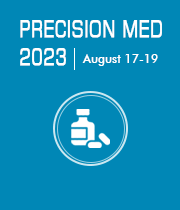Companion Diagnostics in Precision Medicine
A companion diagnostic is a medical device, most commonly an in vitro device, that gives information necessary for the safe and successful use of a corresponding medicine or biological product. The test aids a physician in determining if the benefits of a medicinal product to patients will outweigh any potential serious side effects or hazards. Patients who are most likely to benefit from a certain medicinal product can be identified using companion diagnostics. A companion diagnostic (CDx) is a medical instrument or test that gives information necessary for the safe and successful use of a biological product; in most cases, this would be a highly personalized or focused medication treatment. It allows a doctor to determine if the advantages of a drug or treatment for a patient outweigh any potential serious side effects or hazards. The companion diagnostic is a pharmacogenomics approach. This refers to how a person's complete genome (i.e., their entire genetic pattern, not just individual genes) reacts to the usage of a drug, as well as the drug's total potential influence on that person, including the drug's potential benefits and risks.
- Pharmacogenomics
- Companion Diagnostics for Oncology
- FDA Approval
- Companion Diagnostic Genetic Test

Bernd Blobel
University of Regensburg, Germany
Roy Gary Beran
University of New South Wales, Australia
Matthias Schwab
University of Tubingen, Germany
Thomas Webster
Interstellar Therapeutics, United States
Boris Tankhilevich
Magtera, Inc., United States
Isabella Friis Jorgensen
University of Copenhagen, Denmark


Title : The use of anti seizure medication therapeutic blood level determination to personalise the treatment of epileptic seizures especially in patients attending the accident and emergency department
Roy Gary Beran, University of New South Wales, Australia
Title : Personalized and precision medicine (PPM) can be established as a unique healthcare model through biodesign-driven and inspired biotech, translational applications. This approach aims to ensure human healthcare, wellness, and biosafety.
Sergey Suchkov, Institute for Biotech & Global Health of RosBioTech and A.I. Evdokimov MGMSU, Russian Federation
Title : Monitoring folds localization in ultra-thin transition metal dichalcogenides using optical harmonic generation
Ahmed Raza Khan, Australian National University, Australia
Title : A systematic review of regulatory approaches for Direct- To- Consumers (DTC) genetic testing
Kavitha Palaniappan, Duke-NUS Medical School, Singapore
Title : Regulatory framework of in vitro diagnostic and artificial intelligence for precision medicine
Pei Ting Sarah Chou, Regulatory Affairs Professionals Society, Taiwan
Title : Unraveling cancer stem cell signatures in circulating tumor cells of metastatic colorectal cancer: Investigating ALDH1A1 and the repurposing potential of disulfiram via scRNA-seq
Nurul Syakima Ab Mutalib, Universiti Kebangsaan Malaysia, Malaysia